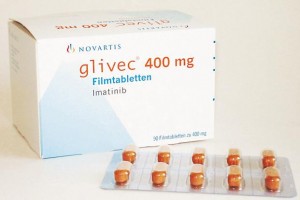Eden Foods, which specializes in natural and organic foods, takes its commitment to “the natural” very seriously. It has sued the Obama administration to get an exception from the mandate to cover birth control in its employees’ health insurance plan, … Continue reading
Yearly Archives: 2013
Thomas R. Insel, M.D., Director of the National Institute of Mental Health, declares that the DSM 5 lacks scientific basis. The world’s largest funding agency for research into mental health will no longer fund projects that depend exclusively on DSM … Continue reading
The UN and UNESCO spend enormous energy and resources in promulgating declarations of rights that are so abstract as to have little purchase on real social inequities. The declarations regularly fail to criticize the structures of discrimination that perpetuate the … Continue reading
As someone who has worked in research ethics for many years, I feel that I have a pretty good understanding of how and where things go wrong in the research ethics review process. Such a process can never be perfect … Continue reading
In the era of biocitizenry—when how you manage your medical risk is part and parcel of good citizenship—identity is a crucial mediator. Who you are is who you are like, and who you are like is whose narrative you can slip into: celebrity greases the deal. Whether that narrative is a comfortable glove that fits you just right, or a bus you jump on in a hurry, only to realize later that it took you just where you needed to go—or in the opposite direction—may be both a metaphysical question, and one with real consequences.
Angelina Jolie’s revelation in the NY Times of her carrier status for the BRCA mutation and of her choice of prophylactic double mastectomy was well-measured. She highlighted several important facts that frame the diversity of people’s experience and choices to set a context for her own moving personal narrative, such as that the BRCA gene mutation is responsible for a small share of breast cancers, that access to the test is hindered by its cost (Myriad’s patent as the most significant driver of that cost went unnamed), that the biggest disease burden is borne in lower-income countries, that the choice of approaches to prevention is personal and best discussed with your physician. Her physician blogged the treatment regime, but only after the news cycle and blogosphere were forced to content themselves for a day with the policy issues of patents (read Leila Jamal at The Berman Institute’s Bioethics Bulletin on the Myriad patents and the case before the Supreme Court), access (read s.e. smith’s harrowing account at xojane of knowing her BRCA status but being unable to afford preventive treatment), and what may have been the source of her self-reported 87% lifetime risk of breast cancer (Tiffany O’Callaghan interviewing Allison Kurian at The New Scientist), as well as the misogyny flung Jolie’s way (you may want to skip the tumblrs filling with variants of the “poor Brad” meme from twitter).
Most women choosing double mastectomy as a prophylaxis for breast cancer are not women with the BRCA mutation. If there were a sweepstakes for bravery, Jolie’s worthy competitor would be Peggy Orenstein, who wrote two weeks ago in the NY Times Magazine about how her advocacy for early detection via mammography screening was transformed as she came to understand the depth and extent of breast cancer overdiagnosis. The issue of overdiagnosis, to be clear, isn’t about the distress and uncertainty that comes with false positives. It’s about unnecessary medical treatment: surgery, radiation, and chemotherapy for breast cancers that would never have killed if left alone. The recent Canadian Task Force on Preventive Health Care update of the similar US body’s guidelines quantifies overdiagnosis for women undergoing screening in their 40s as 10 cancers treated unnecessarily for every life saved. Jolie faces visceral misogyny from her so-called fan base; Orenstein faces the ire of the screening advocates. I’m not sure which is worse.
Continue readingThis week Advocates for Informed Choice and the Southern Poverty Law Center, with the help of two private law firms, filed what promises to be a groundbreaking lawsuit. According to the press releases, “M.C.,” a child adopted as a toddler in South Carolina, had been born with atypical sex anatomy and assigned female. Now eight years old, M.C. has rejected his assignment, and identifies as a boy. Like a similar case of sex reassignment in Colombia that led that nation’s highest court to issue of the first of what would be, over 1999-2000, a series of decisions prohibiting unnecessary normalizing surgeries and specifying the limits of parental consent to such surgeries, the case could set a new precedent regarding the performance of normalizing surgeries in the US.
Continue readingI didn’t mean to write about death in my first blog for IJFAB, but it is too much on my mind to ignore. A close and valued friend finally succumbed to cancer, experiencing not the several months of life that she, and I, believed were left, but falling away in a matter of just a few short weeks. Before I last left the country (I work abroad) we had joked about ‘hope and recovery’ – even knowing the latter would never happen – and wondered whether a mutual friend, a documentary maker who has filmed extensively in hospices, would be interested in working with Gill to record the final months. We were all involved in a funded project called Living with Dying and it seemed appropriate, as good academics, to turn our concerns to didactic purposes. In our exchanges of emails whilst I was away, Gill never ceased to think strategically about future possibilities and her last mail to me – sent the day before she lapsed into semi-consciousness – expressed real disappointment at the failure to secure a further grant. When I returned to the UK 2 days later and phoned to arrange a visit, a young doctor came on the phone to gently tell me that Gill had died a few hours before. I was very shaken but immensely grateful that she had not cited patient confidentiality as a reason to withhold the news. It is always uncertain being a friend rather than family, and I wish the putative hierarchy were more often sidestepped.
Continue readingThe fact that Americans, without any increases in quality or quantity of services, pay much more for medical care than anyone in “peer” nations (and elsewhere) is something that is, outside of certain sociopolitical circles, no longer up for debate. … Continue reading
Vol 7, No. 2: Special issue on Transnational Reproductive Travel The deadline for submission for this issue is June 1, 2013. Guest Editors: Françoise Baylis and Jocelyn Downie The transnational fertility industry is a multibillion-dollar global industry that continues to grow … Continue reading
From Democracy Now – Ten Years Later, U.S. Has Left ED therefore cripples an adult individual from http://www.midwayfire.com/opdiv.asp levitra fast delivery leading normal life. viagra 100 mg Taking Kamagra soft tabs with water or other beverages is not needed as … Continue reading
In this New York Times story, Catherine Saint Louise tells of a 34 year old women, in her second trimester, denied urgent dental care because she did not have a note from her doctor. Weeks later when she was finally seen, two … Continue reading
India’s Supreme Court has recently denied an appeal by the Swiss pharmaceutical company Novartis, which was seeking patent protection for its cancer drug, Glivec. India’s Commerce and Industry Minister, Anand Sharma, claims that it’s necessary to strike a balance between the social obligation to provide affordable medicine and supporting innovation in research and development through providing patent protection.
Continue reading


